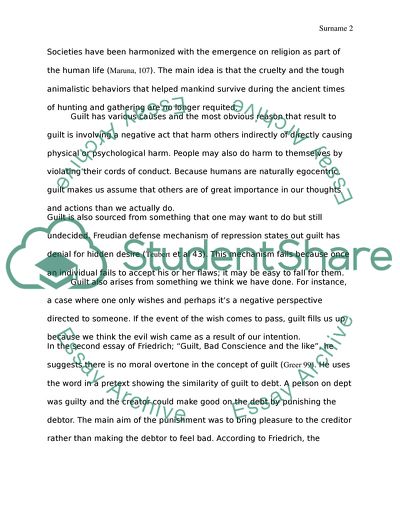Cite this document
(The Genealogy of Morality Essay Example | Topics and Well Written Essays - 1750 words, n.d.)
The Genealogy of Morality Essay Example | Topics and Well Written Essays - 1750 words. https://studentshare.org/psychology/1875151-analysis-of-shame-and-guilt-through-the-works-of-sigmund-freud-civilisation-and-its-discontents-and-friedrich-nietzsche-on-the-genealogy-of-morality
The Genealogy of Morality Essay Example | Topics and Well Written Essays - 1750 words. https://studentshare.org/psychology/1875151-analysis-of-shame-and-guilt-through-the-works-of-sigmund-freud-civilisation-and-its-discontents-and-friedrich-nietzsche-on-the-genealogy-of-morality
(The Genealogy of Morality Essay Example | Topics and Well Written Essays - 1750 Words)
The Genealogy of Morality Essay Example | Topics and Well Written Essays - 1750 Words. https://studentshare.org/psychology/1875151-analysis-of-shame-and-guilt-through-the-works-of-sigmund-freud-civilisation-and-its-discontents-and-friedrich-nietzsche-on-the-genealogy-of-morality.
The Genealogy of Morality Essay Example | Topics and Well Written Essays - 1750 Words. https://studentshare.org/psychology/1875151-analysis-of-shame-and-guilt-through-the-works-of-sigmund-freud-civilisation-and-its-discontents-and-friedrich-nietzsche-on-the-genealogy-of-morality.
“The Genealogy of Morality Essay Example | Topics and Well Written Essays - 1750 Words”. https://studentshare.org/psychology/1875151-analysis-of-shame-and-guilt-through-the-works-of-sigmund-freud-civilisation-and-its-discontents-and-friedrich-nietzsche-on-the-genealogy-of-morality.


